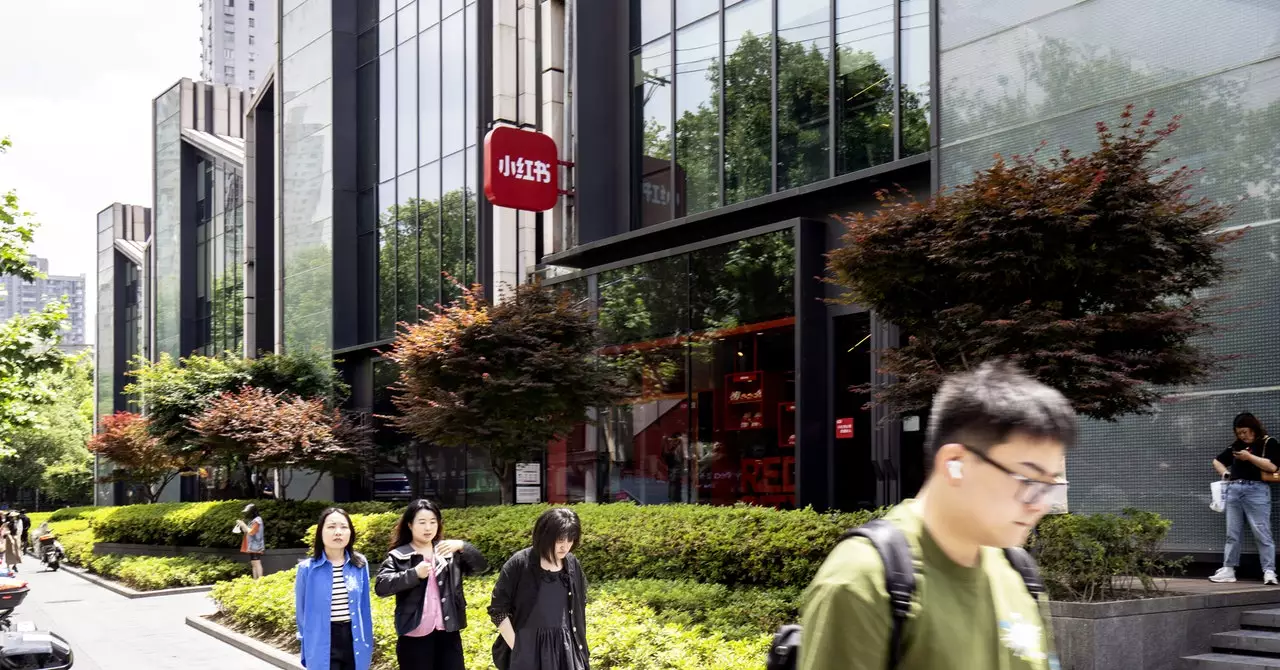The sudden surge of American users flocking to Xiaohongshu, also known as RedNote internationally, following the looming threat of a TikTok ban has created a complex and challenging situation for the Chinese social media platform. With hundreds of thousands of new users joining the platform in just a few days, Xiaohongshu’s capacity to moderate content—especially in English—has been put to the test. This article explores the implications of this influx and the potential challenges ahead for the platform that operates under the strict oversight of Chinese regulatory authorities.
In response to the unexpected increase in English-language content, Xiaohongshu has begun aggressively recruiting content moderators capable of managing English posts and videos. Notably, various tech outsourcing firms in China have posted numerous job listings aimed at attracting qualified individuals to handle the influx. Roles vary from managing video content uploaded by foreign users to ensuring compliance with local regulations around sensitive topics. The urgency of these positions is underscored by the appeal of short-term contracts and immediate start dates, with salaries ranging from 4,500 to 8,000 RMB per month (approximately $600 to $1,100).
The implications of this surge go beyond mere numbers. Companies like VXI Global Solutions and Jinhui Rongzhi Technology have aptly identified the need for quick responses to manage this avalanche of new content effectively. Job descriptions emphasize the role of moderators in filtering and curating the new content effectively, and the reference to “TikTok refugees” reflects a larger trend of migration among platform users driven by geopolitical tensions.
However, the management of this English content is not just about handling new arrivals; it is also tied closely to the regulatory framework set by the Chinese government. Authorities have expressed concerns regarding foreign content on domestic platforms, prompting guidance for Xiaohongshu to ensure that posts by U.S. users remain inaccessible to users within China. This requirement places an additional layer of complexity on moderators who must navigate between ensuring user engagement and adhering to government mandates.
The Chinese Cyberspace Administration (CAC) operates under stringent laws that govern content sharing. Xiaohongshu, like other platforms, must comply with existing regulations, which mandate the removal of content deemed inappropriate—this includes anything from nudity to politically sensitive issues. The government’s historical scrutiny of how social media platforms operate necessitates an effective moderation strategy to prevent the spread of unwelcome content.
The reliance on outsourced moderation services is central to this operational reality. Platforms such as RedNote employ extensive teams of contractors to engage in routine content monitoring. This structural decision enables the platform to respond to emergent threats and act in accordance with government regulations. However, as observed by experts, including those from organizations like Freedom House, the challenges associated with managing sensitive content in China have profound implications for freedom of speech and human rights.
Consequently, the decision to bring on new moderators underscores not only the operational needs of the platform but also the political landscape in which it operates. Historical data has shown that content related to labor strikes, critiques of leadership, or other politically sensitive topics is often flagged and removed. The scale at which this moderation occurs raises concerns about censorship and the ethical implications of controlling user-generated content.
With as many as 700,000 American users reportedly joining Xiaohongshu in a matter of days, the normalization of English content on a traditionally Chinese platform contrasts starkly with the innate restrictions of the platform. Industry analysts, such as Eric Liu from China Digital Times, have noted that this sudden increase could stretch Xiaohongshu’s moderation capabilities precariously thin. The platform’s ability to integrate these new users while adhering to stringent government regulations will be a litmus test for its operational resilience.
Overall, Xiaohongshu’s current predicament reflects wider trends as social media platforms navigate the complexities of globalization, regulatory scrutiny, and user engagement. As it faces new operational challenges resulting from an influx of foreign users, the platform is undoubtedly at a crossroads—balancing the need for growth against the backdrop of stringent oversight and the demand for transparent moderation practices. The evolution of Xiaohongshu will yield valuable insights into the broader landscape of digital communication and governance in an increasingly interconnected world.

